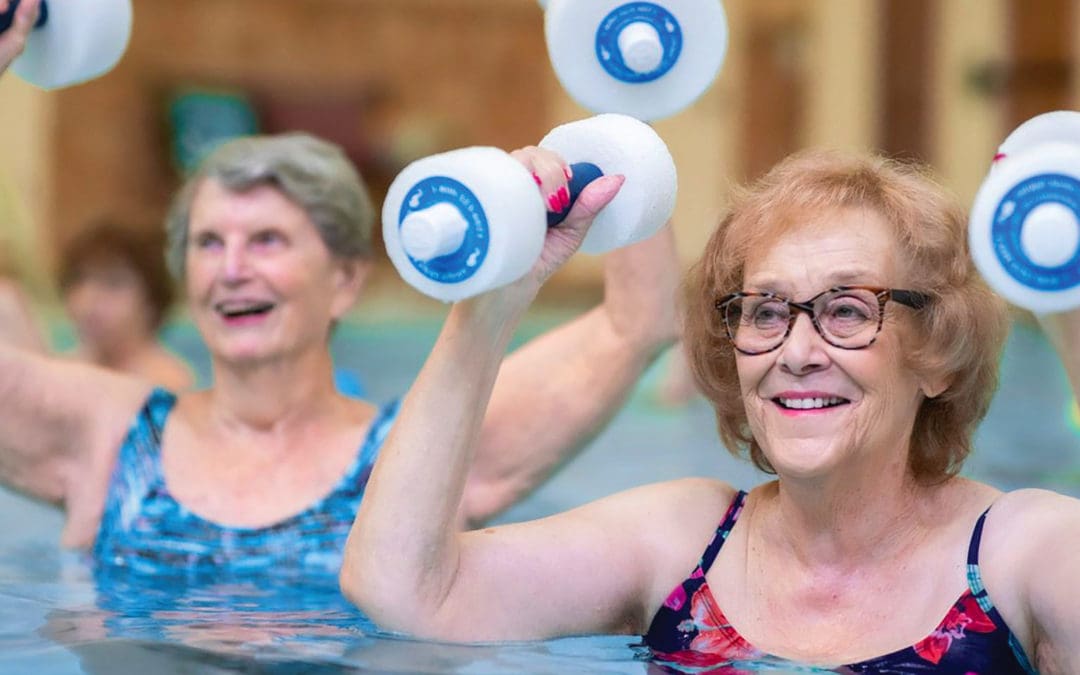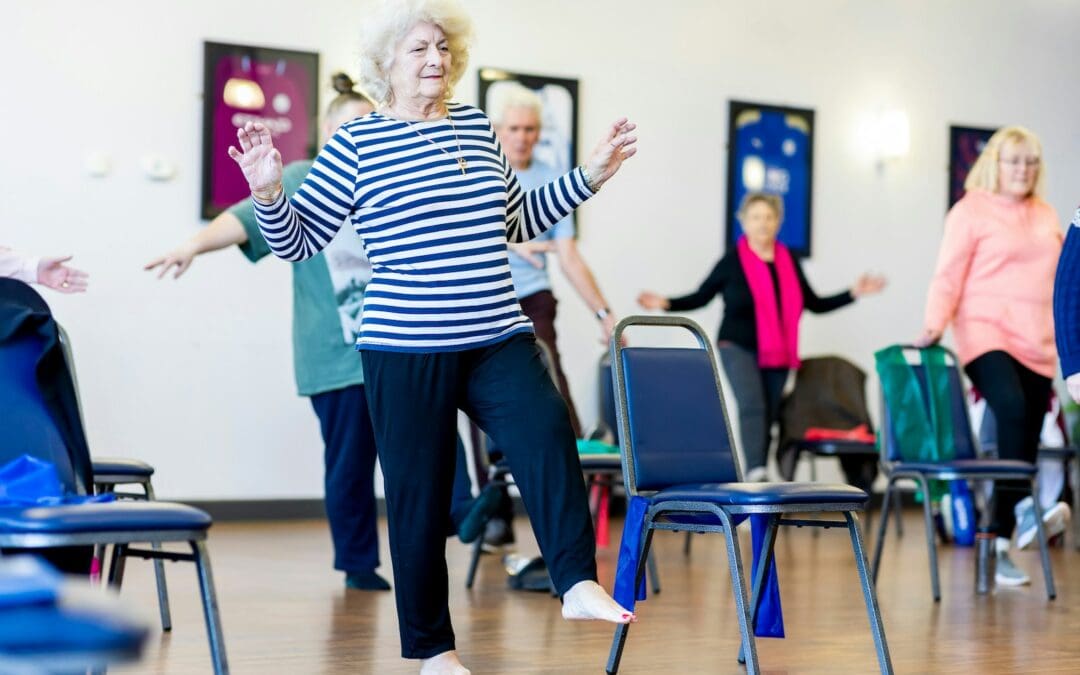
Senior Centers in San Antonio
A Comprehensive Overview for Local Elderly Residents

A Comprehensive Overview for Local Elderly Residents

Determining when an individual becomes a senior citizen is not a one-size-fits-all scenario.

Engaging & Enjoyable Pastimes

Whether it’s due to physical limitations, health concerns, or simply a desire for a quieter lifestyle, many seniors find themselves looking for ways to keep themselves occupied while at home.
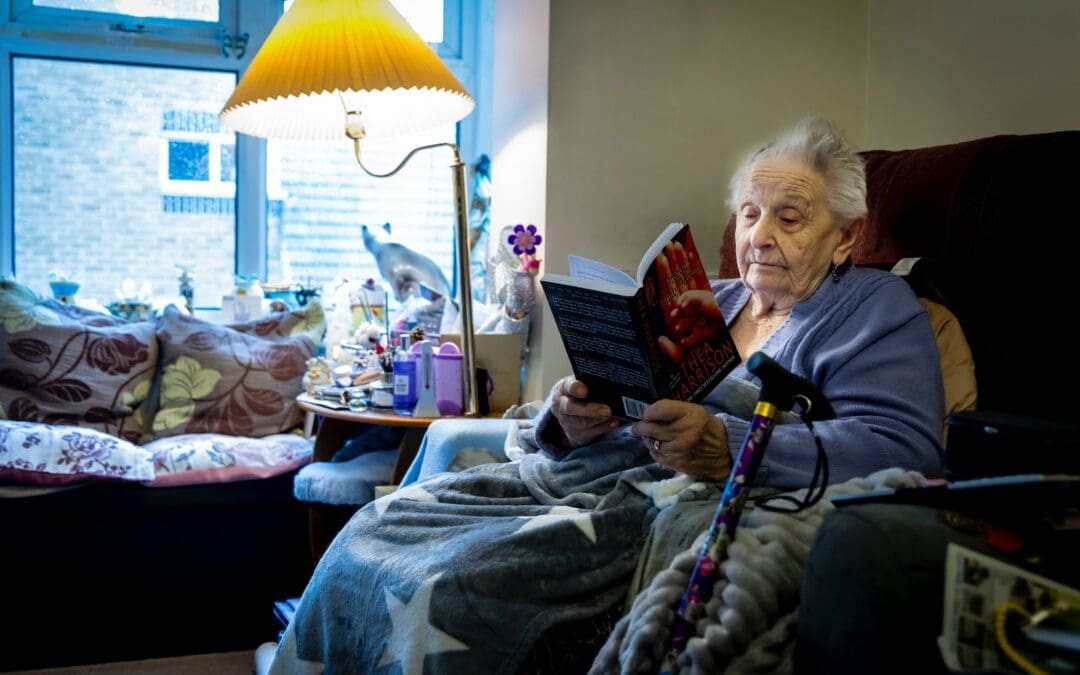
Aging in place is a popular option for seniors, but it often requires modifications to the home to ensure safety and accessibility.
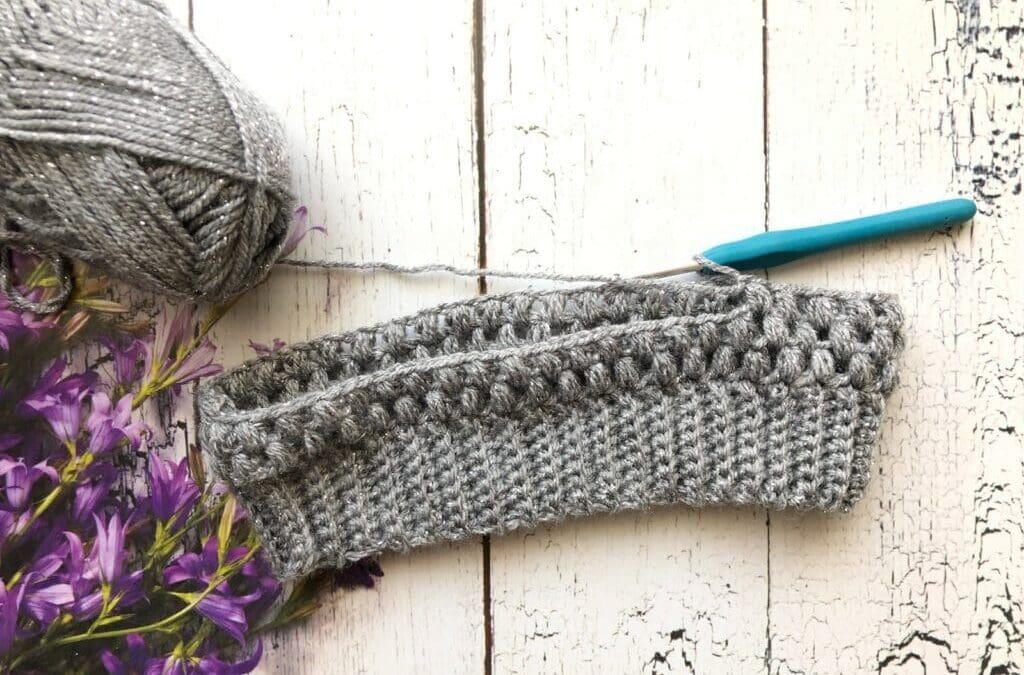
Photo by Merylove Art on Unsplash
Music and art therapy have been shown to provide numerous benefits for seniors, including improving cognitive abilities, reducing stress and anxiety, and promoting social interaction. As people age, they may experience a decline in physical and mental health, which can lead to feelings of isolation and depression. Music and art therapy can help seniors maintain their mental and emotional well-being, while also providing a fun and engaging activity.
Studies have shown that music therapy can be particularly effective for seniors with dementia or Alzheimer’s disease. Listening to music can help reduce agitation and improve behavioral issues that are common in the middle-stages of the disease. Even in the late-stages of Alzheimer’s, a person may be able to tap a beat or sing lyrics to a song from childhood. Music provides a way to connect, even after verbal communication has become difficult. Art therapy, on the other hand, can help seniors express themselves non-verbally and stimulate their brains. Seniors can improve their cognitive abilities, including memory and problem-solving skills, by participating in various art-related activities such as painting, drawing, or sculpting. Moreover, art therapy can positively impact emotional well-being, helping seniors cope with stress, depression, and anxiety.
Understanding Music and Art Therapy
Music and art therapy are two forms of therapy that have been found to be particularly beneficial for seniors. They are forms of therapy that involve the use of creative expression to promote emotional, physical, and mental well-being.
Music Therapy
Music therapy involves the use of music to address the physical, emotional, cognitive, and social needs of individuals. It is a form of therapy that is facilitated by a certified music therapist who has received specialized training in the use of music for therapeutic purposes.
Some of the benefits of music therapy for seniors include the reduction of stress levels, the promotion of relaxation, and the improvement of overall mood. Studies have shown that music therapy can also help to improve cognitive function, memory, and communication skills in seniors with dementia or Alzheimer’s disease [1].
Art Therapy
Art therapy involves the use of art to promote emotional, physical, and mental well-being. It is a form of therapy that is facilitated by a certified art therapist who has received specialized training in the use of art for therapeutic purposes.
Seniors who participate in art therapy can improve their cognitive abilities, including memory and problem-solving skills, by participating in various art-related activities such as painting, drawing, or sculpting. Moreover, art therapy can positively impact emotional well-being, helping seniors cope with stress, depression, and anxiety [2].
In conclusion, music and art therapy are two forms of therapy that can provide numerous benefits for seniors. They are creative and engaging ways to promote emotional, physical, and mental well-being in seniors.
[1] Alzheimer’s Association [2] Senior Helpers
The Role of Music and Art Therapy in Senior Care
Music and art therapy have been proven to have numerous benefits for seniors. These therapies can help improve their quality of life, promote emotional well-being, and foster a sense of community and connection.
Seniors often face a variety of challenges as they age, such as physical limitations, cognitive decline, and social isolation. Music and art therapy can help address these challenges by providing an outlet for self-expression and creativity. These therapies can also help seniors connect with others and build a sense of community.
Caregivers can play an important role in facilitating music and art therapy for seniors. They can help seniors find local resources, such as community centers or senior centers, that offer these types of programs. Caregivers can also encourage seniors to participate in these activities and provide the necessary support to help them get the most out of the experience.
Music therapy can involve listening to music, singing, or playing an instrument. It has been shown to improve mood, reduce stress and anxiety, and promote relaxation. Art therapy, on the other hand, involves various forms of artistic expression, such as painting, drawing, or sculpting. It can help seniors cope with emotional issues, such as depression and anxiety, and improve their overall well-being.
In conclusion, music and art therapy can be valuable tools for promoting the health and well-being of seniors. Caregivers can play an important role in helping seniors connect with these types of programs and get the most out of the experience. By incorporating music and art therapy into senior care, caregivers can help seniors maintain their independence and improve their overall quality of life.
Benefits of Music Therapy for Seniors
Music therapy has gained recognition recently for its powerful abilities to promote overall health and wellness, especially for seniors. Music therapy is a form of therapy that uses music to address physical, emotional, cognitive, and social needs of individuals. It can be used to treat a variety of conditions, including dementia, depression, anxiety, and chronic pain.
Cognitive and Memory Enhancement
Studies have shown that music therapy can help improve cognitive function in seniors. It can stimulate the brain, helping to improve memory, attention, and concentration. According to a study published in the Journal of Alzheimer’s Disease, music therapy can also slow the deterioration of language and speech skills within those who have dementia. Music therapists can help retrain individuals with speaking by using musical vocalization.
Emotional and Mood Regulation
Music therapy can also help regulate emotions and mood in seniors. It can help reduce symptoms of depression, anxiety, and stress. According to a study published in the Journal of Psychosocial Nursing and Mental Health Services, music therapy can help promote relaxation, calm, and self-esteem in seniors.
Physical Health Improvements
Music therapy can also promote physical health in seniors. It can help improve motor skills, coordination, and balance. Music therapy can also be used to promote movement and dancing, which can help seniors stay active and engaged. According to a study published in the Journal of Gerontological Nursing, music therapy can also help reduce pain and improve sleep quality in seniors with chronic pain.
In conclusion, music therapy can have a variety of benefits for seniors, including cognitive and memory enhancement, emotional and mood regulation, and physical health improvements. It is a safe and effective therapy that can be used to treat a variety of conditions and promote overall health and wellness in seniors.
Benefits of Art Therapy for Seniors
Art therapy can be a powerful tool for seniors to express themselves, boost their cognitive function, and engage with their community. Here are some of the key benefits of art therapy for seniors:
Expressive Outlet and Emotional Support
Art therapy provides seniors with a safe and creative outlet to express their emotions and feelings. It can help them cope with depression, anxiety, and stress, and provide a sense of relaxation and calm. Through painting, writing, or other forms of creative expression, seniors can explore and process their emotions in a supportive and non-judgmental environment.
Cognitive Stimulation and Motor Skills Enhancement
Art therapy can also stimulate cognitive function and enhance motor skills in seniors. It can improve attention, language, and memory, and help seniors maintain mental stimulation and sharpness. Engaging in creative activities like painting, sculpting, or drawing can also help seniors maintain and develop their motor skills.
Social Engagement and Community Building
Art therapy can also provide an opportunity for seniors to connect with others and build a sense of community. It can foster social interaction and socialization, which can be especially important for seniors who may be isolated or lonely. Through art therapy, seniors can engage with their peers and connect with others who share similar interests and experiences.
Overall, art therapy can be a valuable tool for seniors to express themselves, boost their cognitive function, and engage with their community. By providing a safe and supportive environment for creative expression, art therapy can help seniors improve their emotional well-being, enhance their cognitive abilities, and build meaningful connections with others in their community.
How Caregivers and Therapists Can Implement Music and Art Therapy
Implementing music and art therapy for seniors can be a great way to help them improve their quality of life. Caregivers and therapists can work together to develop a treatment plan that incorporates music and art therapy into a senior’s daily routine.
One way to implement music and art therapy is to work with a certified music therapist. These professionals can create a curriculum that is tailored to a senior’s interests and abilities. They can also provide encouragement and support throughout the therapy process.
Caregivers and therapists can also work together to incorporate music and art therapy into a senior’s daily routine. For example, playing calming music during meal times or art activities after breakfast can help create a calming and enjoyable environment for seniors.
Another way to implement music and art therapy is to encourage seniors to participate in group activities. This can include singing in a choir or participating in an art class. Group activities can help seniors feel more connected to others and provide a sense of community.
Overall, implementing music and art therapy for seniors can be a great way to help them improve their quality of life. By working with a certified music therapist and incorporating therapy into a senior’s daily routine, caregivers and therapists can help seniors feel more engaged and connected to the world around them.
Conclusion
In conclusion, music and art therapy are effective interventions that can improve the well-being and quality of life of seniors. Engaging in creative expression can reduce stress levels, promote relaxation, and uplift moods, which can have a positive impact on overall mental health and emotional well-being.
Music therapy has been shown to enhance the mood and emotional well-being of seniors. Listening to music can help seniors feel happier, calmer, and less anxious. Singing and participating in music activities can also improve self-esteem and provide a sense of accomplishment. Silent Discos are a fun and unique music activity for seniors.
Art therapy is also an effective intervention for seniors. It provides a sense of purpose and can help seniors feel a sense of accomplishment. Engaging in creative expression can also be relaxing and reduce stress levels.
Overall, music and art therapy are valuable tools for improving the well-being and quality of life of seniors. By providing opportunities for creative expression and promoting relaxation, these interventions can help seniors feel happier, more fulfilled, and more connected to others.
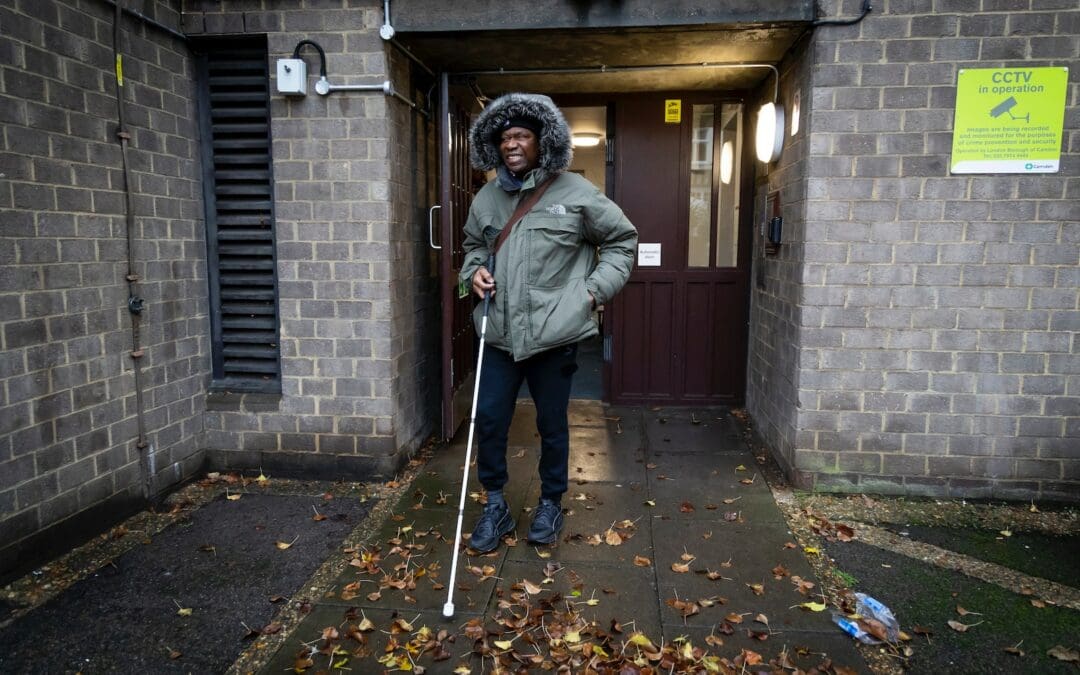
Fortunately, there are many travel destinations that cater specifically to seniors with mobility issues, making it possible for them to enjoy all the benefits of travel without sacrificing their comfort or safety.

Tech gadgets can have a range of benefits for seniors, including improved connections with family and friends, increased independence, and improved health and wellbeing.
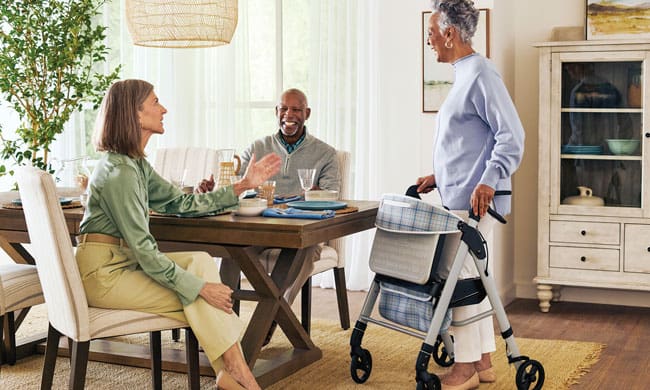
3 Stylish Safety and Mobility Products

Whether it’s pride, pain, inspiration, nostalgia or a combination of sentiments, any time veterans tell their stories, there’s a good chance they’ll evoke strong emotions from both the tellers and their audiences.
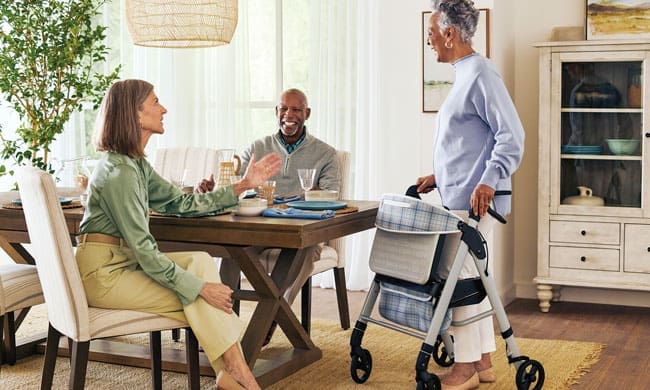
3 Stylish Safety and Mobility Products
(Family Features) While aging is inevitable, it doesn’t mean you can’t do so with grace and style. For many seniors hoping to look and feel their best, there are plenty of options, from the clothing they wear to products they use every day. Choosing more ‘stylish’ safety accessories is one way to go.
To improve quality of life and inspire confidence, Medline, a leading provider of consumer medical products, teamed up with Martha Stewart to introduce the Martha Stewart Home Comfort Care Collection. The line of design-inspired safety and mobility products combines sophisticated design and dependability to help those who use them look and feel their best.
“We are excited to enter into this unique partnership,” said Dawn Freitag, Medline senior marketing manager. “Martha Stewart’s signature style has always set the standard for better, more enjoyable living and this line of mobility and bath safety products is no exception. We believe these fashionable, modern designs along with our top-rated quality and value pricing will help seniors live their happiest, healthiest lives with exceptional safety, security and style.”
Consider these supportive care products to maximize style and safety, and find the full collection by visiting athome.medline.com.
Around the HomeThe right mobility aid can help you navigate your home. One option, the Adjustable Rolling Walker, combines a chic, sporty checked pattern with renowned functional features to help you easily stand and walk safely and independently. Its smooth-rolling, all-terrain wheels make it easy to get around in or outside of your home while push-down, locking brakes are ready for a rest stop at any time. Plus, it easily folds for travel and storage, and features under-seat storage and adjustable easy-grip handles for a custom fit and fashionable function.
For the BathroomThe most essential purpose of bathroom safety aids is to prevent falls on wet, slippery surfaces. Beyond securely-attached bath mats and grab bars, the Martha Stewart Euro-Style Shower Chair allows you to sit while showering for extra peace of mind. With built-in handgrips and a backrest for comfort, the rust-resistant chair also features adjustable, push-button height settings to improve stability and built-in Microban protection to resist mold and mildew.
In the BedroomThere are numerous products designed to maximize rest, relaxation and safety in and around your bed. To help you get in and out of bed, an Adjustable Bed Assist Bar slides around the side of the mattress – without floor legs that may pose a tripping hazard – to offer support. With a stylish faux woodgrain bag design and neutral color, the bar seamlessly blends in with bedding and linens to provide both function and flair.
SOURCE:Medline x Martha Stewart

